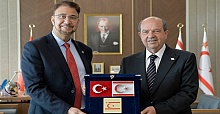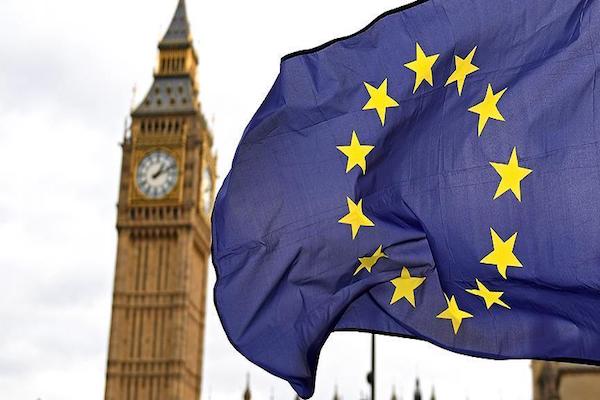Speaking after a meeting with British Prime Minister Theresa May in London -- where he visited to discuss Brexit with the U.K. government -- Tajani said that the triggering of Article 50 could be reversed easily by the EU member states if there is a change of government after the election. “If the UK, after the election, wants to withdraw [the request to leave the EU], then the procedure is very clear,” he said in an interview, local media outlets, including The Guardian reported. “If the UK wanted to stay, everybody would be in favor. I would be very happy," he said. Tajani told reporters after his meeting with May that they were in agreement on the need for a resolution to the issue of U.K. and EU citizens’ rights after Brexit.
He said: “The message is a positive message. We want to strengthen the citizens’ rights -- European citizens living in the UK and UK citizens living in the European Union. This is the most important message – we want to work together. “Mrs. May underlined this position. It is our position. Here we were both in favour of our citizens. It is a good start, a good beginning; now we need to go for implementation," he said. A spokesperson for May said the prime minister and Tajani agreed the U.K. and EU should continue to have a close relationship after Brexit. They also agreed on the importance of giving "early certainty" about the status of British citizens living elsewhere in the EU and citizens of other member states in the U.K.
On Tuesday, the British premier described her move to call a snap election a "recent and reluctant decision". She also said Britain was leaving the European Union and "there can be no turning back". May had opposed the idea of a snap poll since she came to office following the resignation of her Conservative Party predecessor David Cameron over Brexit. British voters decided to leave the European Union in a referendum last year, signaling the end of the country's 44-year membership of the bloc. Recent opinion polls suggest a clear lead for May’s Conservatives over the main opposition Labour Party.


 CTCA UK Condemns the Political Forcing Out of Afzal Khan MP for Engaging with Turkish Cypriots
CTCA UK Condemns the Political Forcing Out of Afzal Khan MP for Engaging with Turkish Cypriots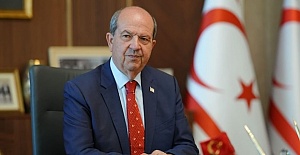 Tatar: “Reaction to MP’s TRNC visit is yet another stark example of the Greek Cypriot leadership’s primitive and domineering mentality”
Tatar: “Reaction to MP’s TRNC visit is yet another stark example of the Greek Cypriot leadership’s primitive and domineering mentality”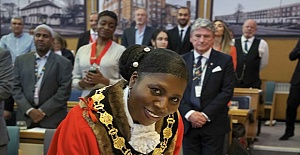 Margaret Greer has been sworn in as the new Mayor of Enfield
Margaret Greer has been sworn in as the new Mayor of Enfield Prime Minister Keir Starmer's 2025 Easter message
Prime Minister Keir Starmer's 2025 Easter message Team Enfield ranks fifteenth the in London Youth Games
Team Enfield ranks fifteenth the in London Youth Games Parking enforcement boosted with more officers on patrol in Enfield
Parking enforcement boosted with more officers on patrol in Enfield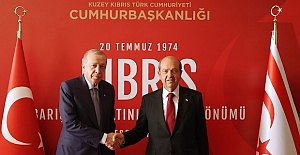 Ersin Tatar meets with President Erdoğan
Ersin Tatar meets with President Erdoğan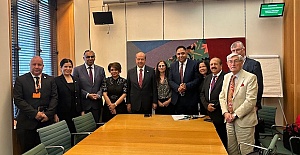 President Ersin Tatar Holds Ministerial-Level Meeting with UK Minister for Europe
President Ersin Tatar Holds Ministerial-Level Meeting with UK Minister for Europe UEFA Europa League and UEFA Conference League draws to be combined into one single show
UEFA Europa League and UEFA Conference League draws to be combined into one single show EuroLeague schedule for 2025-26 season announced
EuroLeague schedule for 2025-26 season announced Zeynep Sonmez becomes first Turkish tennis player to reach third round at Wimbledon
Zeynep Sonmez becomes first Turkish tennis player to reach third round at Wimbledon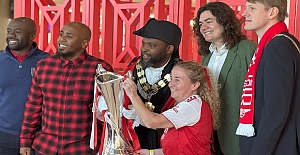 European champions Arsenal Women will play all of their league matches at the Emirates Stadium
European champions Arsenal Women will play all of their league matches at the Emirates Stadium Enfield Labour welcomes the completion of A10 average speed cameras extension.
Enfield Labour welcomes the completion of A10 average speed cameras extension. TfL opens 2025 grants for community groups to encourage more walking, cycling and active travel in the capital
TfL opens 2025 grants for community groups to encourage more walking, cycling and active travel in the capital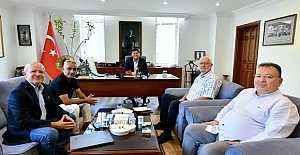 Fethiye Launches International Digital Tourism Campaign with UK-Based Publisher
Fethiye Launches International Digital Tourism Campaign with UK-Based Publisher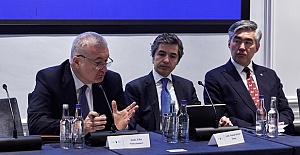 Highlights from the 3rd Trans-Caspian Connectivity Conference in London
Highlights from the 3rd Trans-Caspian Connectivity Conference in London

